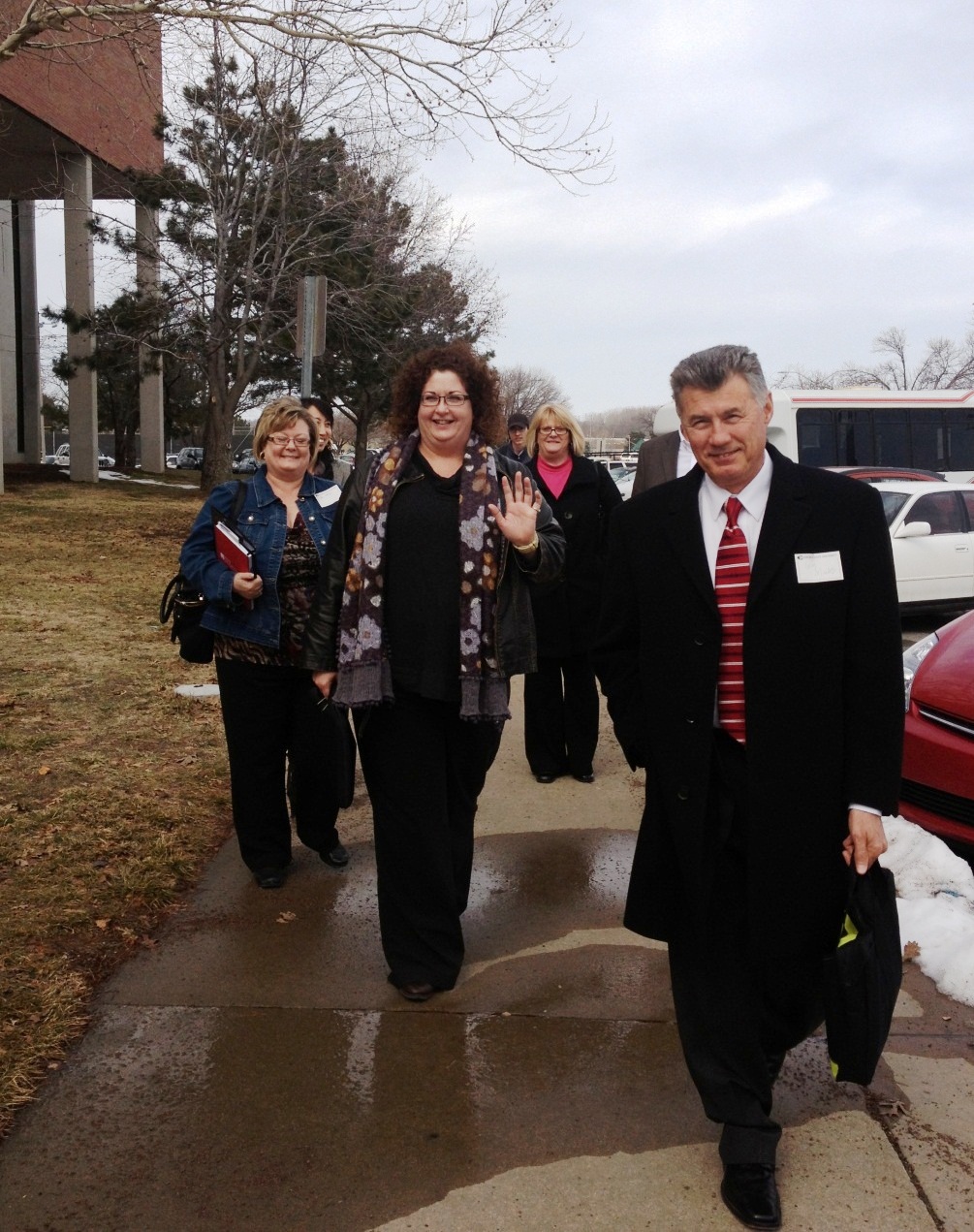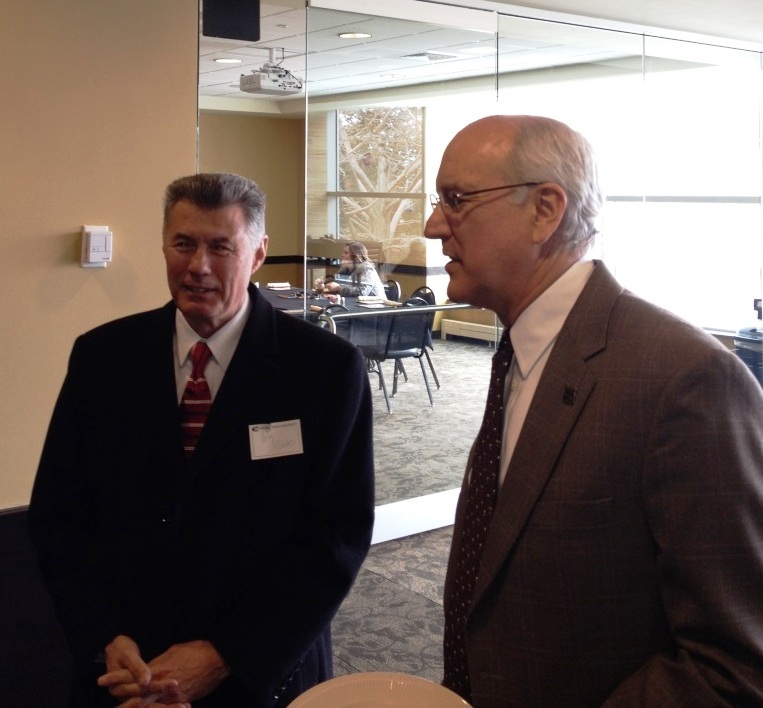Local Public School Representatives and ASU Faculty Visit Emporia State’s Teachers College
JONESBORO -- A group of seven ASU faculty and local public school representatives visited Emporia State University’s Teachers College and Professional Development School program earlier this month. Dr. Greg Meeks, ASU’s College of Education Associate Dean said, “Changes in Arkansas teacher licensure and national accreditation standards for teacher preparation has created a unique opportunity to rethink how we prepare future teachers. We would be regressing if we didn't look at some of the best teacher preparation programs out there."
Dr. Greg Meeks organized the trip, choosing Emporia State’s elementary teacher preparation program because of their year-long internship, extensive collaboration with public schools and its recognition as one of the top four teacher preparation programs in the country. Created in 1993, Emporia State’s Professional Development School (PDS) Program has been hailed by the U.S. Department of Education as a model for the 21st century.
James Dunivan and Dr. Karen Curtner, superintendent and assistant superintendent (respectively) of Nettleton Public Schools, along with Pam Dooley, principal at Westside Middle School, accompanied several ASU faculty and staff, including Dr. Jeong Hee Choi, Dr. Rick Hux, Dr. Dixie Keyes and Dr. Greg Meeks. They spent a full day interacting and asking questions of the Emporia State PDS coordinator, the chair of the Elementary and Special Education department, and other faculty members who supervise teacher candidates in the program. They also visited a local public elementary school in Emporia and interviewed teacher interns and mentor teachers involved in the PDS model.
The National Council for Accreditation of Teacher Education's “Report of the Blue Ribbon Panel on Clinical Preparation and Partnerships for Improved Student Learning” was a strong driver for the group’s visit. The report recommends transforming teacher education through clinical practice, which is most often interpreted as modifying teacher preparation programs to involve longer periods of apprenticeships in schools where experienced in-service teachers serve as mentors and evaluators of pre-service teachers. Most models like these place teacher candidates under the tutelage of mentor teachers in schools for an entire year. Although the senior year of ASU’s elementary and middle childhood preparation programs are centered in field experiences in schools, ASU is hoping to deepen the experience by partnering more closely with placement schools using the PDS model. This means that schools and their faculty who want to serve in a PDS capacity would participate in creating agreements about processes, curriculum, and evaluation tools. ASU teacher education faculty would work closely with teacher interns and mentor teachers to ensure models of teaching, classroom management theory and application, and quality methods and materials are involved in the interns’ experiences. “The process is highly collaborative and involves constant reflection and revisions,” said Dr. Dixie Keyes, a teacher educator in ASU’s Department of Teacher Education.
The Common Core State Standards and new teacher preparation standards provide a common link from schools to the university’s teacher preparation programs. “Never before have events and guidelines converged in such an ideal way,” commented Dr. Hux. “ASU plans to spend the next year working to strengthen its relationship with partner schools and improve our preparation program so that our graduates are equipped to be successful in the classroom.”
# # #







